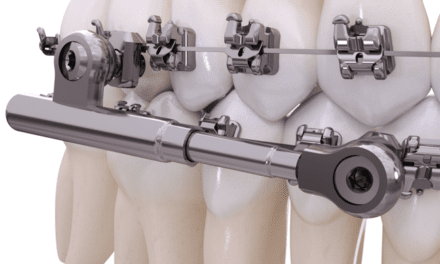
I am writing this soon after returning from the AAO Annual Session in the fascinating city of Honolulu. The city is a hybrid: it’s officially part of the United States, but most days I saw more Japanese than Americans there—all within a few minutes’ drive of Pearl Harbor. In the bars and on the beaches, cosmopolitan tourists from all over the world rubbed sunburned elbows with fresh-faced Americans who have never been anywhere but their hometown and their Hawaiian military base. Underlying it all was the history of a once-independent kingdom. Today’s trivia: the ‘Iolani Palace in Honolulu is the only royal palace in the United States used as an official residence by a reigning monarch.
Like the city in which it took place, the Annual Session was a mÉlange of nationalities. Among the foot traffic that passed by the Orthodontic Products booth, American orthodontists were outnumbered by their counterparts from Australia, Brazil, China, and Japan, who were taking advantage of the location of the Session to acquire as much new knowledge and as many new products as they could, then use them to serve the growing orthodontic markets in their home countries.
In the lecture halls, seeing some of these same visitors present such impressive cases, I was reminded that American orthodontists are fortunate that their jobs can’t be outsourced to other countries: even if a Brazilian agreed to work for free, commuting or moving to Rio for 2 years to get little Sally’s teeth fixed will never make economic sense.
You can read the complete text of Ackerman’s education article with our digital edition.
Sitting beside me in those lectures was a host of American orthodontic residents who are facing mountains of debt and a crowded job market, as Marc Bernard Ackerman, DMD, MBA, pointed out in an article in our last issue (“Debt and the New Orthodontist“). According to a Bentson Clark & Copple survey that Ackerman cited, there is approximately one practice opportunity available for every three new graduates in this country.
If I were the type to give advice, I would say this to those about to graduate: learn Portugese. Or Chinese. Because it’s good to remember that America is not the only country in the world, and if there’s one thing that people of all nations share, it’s crooked teeth.
Christopher Piehler
/p>









